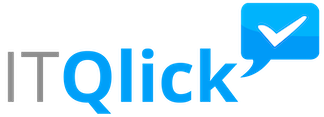Trello Review - why 4.2 stars?
Compare Pricing
| ITQlick Score: | 99/100 |
|---|---|
| ITQlick Rating: |
|
| Pricing: | 2/10 - low cost |
| Category: | Project Management -> Trello review |
| Ranking: | Ranked 1 out of 884 Project Management systems |
| Company: | Fog Creek Software |
| Pricing: | starts at $5 per user/month |
| Typical customers: | Small, medium and large size businesses |
| Platforms: | Desktop, Mobile, Cloud |
| Links: | Trello pricing, Trello alternatives |
 Shlomi Lavi / updated: Feb 28, 2023
Shlomi Lavi / updated: Feb 28, 2023We publish unbiased reviews. Our opinions are our own and are not influenced by payments from advertisers. This content is reader-supported, which means if you leave your details with us we may earn a commission. Learn why ITQlick is free .
Table of Contents
What is Trello?
Trello is a project management software designed to help teams organize their work and manage their projects efficiently. It provides a visual way of organizing tasks, collaborating with team members, and tracking progress towards project goals. It is a flexible and versatile tool that can be used for a wide range of projects and industries, from software development to event planning.
Trello is ideal for teams of all sizes who need a simple and intuitive way to manage their projects. It is especially useful for remote teams or those working from different locations since it can be accessed from anywhere with an internet connection. Trello's user-friendly interface makes it easy to get started, even for those who are not tech-savvy.
One of the most prominent features of Trello is its use of boards, lists, and cards to organize tasks. Boards represent projects, lists represent stages of the project, and cards represent individual tasks. This allows team members to easily see the progress of a project and what tasks need to be completed. Trello also offers a variety of customization options, including the ability to add labels, due dates, and attachments to cards.
Another useful feature of Trello is its integration with other apps and services, such as Google Drive, Dropbox, and Slack. This means that users can easily access and share files, communicate with team members, and stay up-to-date on project progress without having to switch between different tools.
Trello also has a feature called Power-Ups, which are add-ons that can be used to extend the functionality of the tool. Some examples of Power-Ups include calendar view, voting, and custom fields. This allows teams to tailor Trello to their specific needs and workflows.
Trello was founded in 2011 in New York City, New York, and currently has over 150 employees. It has become a popular tool for project management, with over 50 million users worldwide. Trello has received several awards, including the Webby Awards and the SXSW Interactive Awards, and has been featured in numerous publications, such as The Wall Street Journal and Forbes.
In conclusion, Trello is a powerful and user-friendly project management software that has helped teams all over the world manage their projects more efficiently. Its use of boards, lists, and cards, as well as its integration with other apps and services, make it a versatile tool that can be used for a wide range of projects and industries. Its customizable features, such as Power-Ups, allow teams to tailor it to their specific needs and workflows. Trello's success and popularity is a testament to its effectiveness and usefulness in today's fast-paced and constantly evolving business world.
Who is it best for?
Trello is a project management software that caters to a wide range of industries and customers. Its flexibility and versatility make it suitable for almost any type of project, from software development to marketing campaigns. Here are some examples of typical customers and industries that use Trello:
-
Software Development: Trello is popular among software development teams, as it helps them manage their projects and collaborate on code development. The tool provides an easy-to-use interface for tracking bugs, feature requests, and code changes. Some typical customers in this industry include Atlassian, Shopify, and Adobe.
-
Marketing and Advertising: Trello is used by marketing and advertising teams to manage their campaigns, track their progress, and collaborate on creative assets. The tool's visual interface and customizable workflows make it an ideal choice for managing complex marketing projects. Some typical customers in this industry include Airbnb, Kickstarter, and Red Bull.
-
Education: Trello is also used in the education sector to manage projects, assignments, and research. Teachers and students use Trello to organize their coursework, collaborate on group projects, and track their progress. Some typical customers in this industry include Harvard University, Yale University, and the University of Michigan.
-
Non-Profit Organizations: Trello is also popular among non-profit organizations, as it helps them manage their projects, volunteers, and fundraising efforts. The tool provides a simple and effective way to track donations, organize events, and collaborate with team members. Some typical customers in this industry include The American Red Cross, Save the Children, and Oxfam.
-
Healthcare: Trello is also used in the healthcare industry to manage patient care, research projects, and clinical trials. The tool provides an easy way to track patient progress, manage clinical trials, and collaborate with team members. Some typical customers in this industry include Mayo Clinic, Cleveland Clinic, and the National Institutes of Health.
In conclusion, Trello is a versatile project management tool that can be used in almost any industry. Its visual interface, customizable workflows, and integration with other tools make it a popular choice for teams around the world. Its customers range from software development companies to non-profit organizations and healthcare providers.
Main features and functionalities
Trello is a powerful project management software that can help businesses of all sizes streamline their workflow, improve collaboration, and achieve their project goals. Here are some ways Trello can help your business:
-
Better Organization: Trello's boards, lists, and cards provide a visual way to organize your projects, tasks, and team members. You can easily create new cards for tasks, assign them to team members, and move them between lists to track progress. This makes it easy to stay on top of your projects and ensure that everything is running smoothly.
-
Improved Collaboration: Trello's collaboration features make it easy for teams to work together on projects. Team members can add comments, attachments, and due dates to cards, and can even mention other team members to get their attention. This helps to keep everyone on the same page and ensures that tasks are completed on time.
-
Customizable Workflows: Trello's Power-Ups allow you to customize your workflow to fit your business needs. For example, you can add a calendar view to your boards, enable voting on cards, or integrate with other tools like Slack or Google Drive. This helps to create a more efficient workflow and ensures that you are using the tool in a way that works best for your business.
-
Improved Productivity: Trello's visual interface and easy-to-use features make it easy for teams to stay productive and focused on their tasks. By using Trello to manage your projects, you can reduce the amount of time spent on administrative tasks, such as tracking progress or following up with team members, and instead focus on completing your project goals.
-
Accessible from Anywhere: Trello is a cloud-based tool, which means that you can access it from anywhere with an internet connection. This is especially useful for businesses with remote or distributed teams, as it allows everyone to stay connected and work together regardless of their location.
In conclusion, Trello is a powerful project management tool that can help your business improve its workflow, collaboration, and productivity. Its customizable workflows, visual interface, and collaboration features make it an ideal choice for businesses of all sizes and industries. By using Trello to manage your projects, you can streamline your workflow, improve communication, and achieve your project goals
What is the actual cost?
Trello offers four pricing plans for its users: Free, Standard, Premium, and Enterprise. The cost of the three plans is
-
Free: The free plan is for individual users or single projects costing $0.
-
Standard: The cost of the Standard plan is around $6 per user per month. For an annual plan, the cost is around $5 per user per month.
-
Premium: The cost of the Premium plan is around $12.50 per user per month. For an annual plan, the cost is around $10 per user per month.
-
Enterprise: The cost of the Enterprise plan is around $210.00 per user per month. For an annual plan, the cost is around $17.50 per user per month.
ITQlick pricing score is 2 out of 10 (10 is most expensive). Access ITQlick pricing guide for Trello. You can also find here pricing information from Trello's website.
Pros
- Trello software is lightweight, less overbearing on disk space
- Trello has a clean and easy-to-use interface that makes it simple for users to organize and manage their tasks. Compared to competitors like Asana, Trello interface is more intuitive and requires less training for new users.
- Trello is significantly less expensive for individuals and teams
- There is an API available on Trello
- Trello unique use of boards, lists, and cards allows for a highly visual representation of project progress. This visual approach helps users quickly see the status of each task and how it fits into the overall project plan. Competitors like Basecamp and Jira lack this level of visual organization.
Cons
- Trello has no offline version
- While Trello simplicity is an advantage in some cases, it may be a disadvantage for users who require more advanced features. Competitors like Asana and Wrike offer more comprehensive project management tools, such as advanced reporting and automation.
- Trello should consider including Gantt chart.
- Having an accessible calendar on Trello will make it easy to plan tasks and deadlines.
- Trello integration options are not as robust as some of its competitors. While it integrates with many popular tools like Slack and Google Drive, competitors like Asana and Monday.com offer a wider range of integrations with more advanced tools and services.
How it stacks up?
Access a head to head analysis of Trello vs alternative software solutions.Frequently Asked Questions (FAQs)
Is Trello right for you or your business?
Trello is best-fit for individuals and small-sized teams, although the software provider targets businesses of all sizes. Customer sizes can vary from 1 to over 1000. The software is primarily relevant in the tech industry and project management departments. Marketing and HR departments also use Trello. Notable customers that use Trello include eBay, Google, SquareSpace, Egencia, etc.List of categories
List of features
Auditor - Shlomi Lavi
Shlomi Lavi is an entrepreneur and founder of ITQlick.com. He holds a Bachelor of Science (B.Sc.) in Information Systems Engineering from Ben Gurion University in Israel. Shlomi brings 17 years of global IT and IS management experience as a consultant and implementation expert for small, medium and large-sized (global) companies. Shlomi’s goal is to share the best knowledge and news about information systems so you can make smarter buying decisions for your business.
